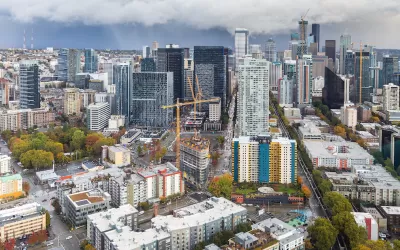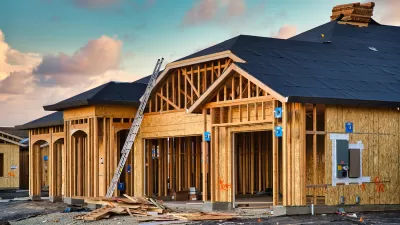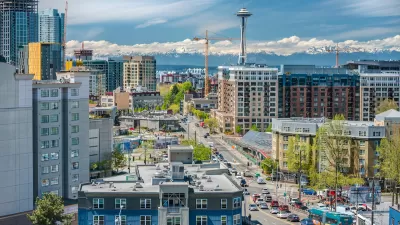Councilmembers who opposed the proposal say the fee would have slowed housing development and raised housing costs.

The Seattle City Council voted against a proposal that would have paved the way for a transportation impact fee that would have imposed a charge on new developments.
According to an article in The Registry, “The proposed ordinance aimed to pave the way for a transportation impact fee geared toward constructing sidewalks and other vital infrastructure. Developers expressed concerns that such fees would elevate housing costs, contributing to the council’s close vote against the measure.”
The article adds that the ordinance, which could come before the council again next year, did not immediately impose the fee, but “adjusted the comprehensive plan to outline potential strategies for its implementation.” However, housing advocates expressed concern that the fee could slow housing production and ultimately pass costs on to renters.
A transportation impact fee has been proposed in Seattle for over a decade. In an article in The Urbanist, Ryan Packer notes that “Seattle has long been an outlier in Washington in not having a transportation impact fee program, with over 70 other jurisdictions having fees of certain sizes in place, in addition to impact fees for other infrastructure like schools and parks.”
FULL STORY: Seattle City Council Votes Against Implementation of Transportation Impact Fee on Commercial Development

Trump Administration Could Effectively End Housing Voucher Program
Federal officials are eyeing major cuts to the Section 8 program that helps millions of low-income households pay rent.

Planetizen Federal Action Tracker
A weekly monitor of how Trump’s orders and actions are impacting planners and planning in America.

Ken Jennings Launches Transit Web Series
The Jeopardy champ wants you to ride public transit.

Washington Legislature Passes Rent Increase Cap
A bill that caps rent increases at 7 percent plus inflation is headed to the governor’s desk.

From Planning to Action: How LA County Is Rethinking Climate Resilience
Chief Sustainability Officer Rita Kampalath outlines the County’s shift from planning to implementation in its climate resilience efforts, emphasizing cross-departmental coordination, updated recovery strategies, and the need for flexible funding.

New Mexico Aging Department Commits to Helping Seniors Age ‘In Place’ and ‘Autonomously’ in New Draft Plan
As New Mexico’s population of seniors continues to grow, the state’s aging department is proposing expanded initiatives to help seniors maintain their autonomy while also supporting family caregivers.
Urban Design for Planners 1: Software Tools
This six-course series explores essential urban design concepts using open source software and equips planners with the tools they need to participate fully in the urban design process.
Planning for Universal Design
Learn the tools for implementing Universal Design in planning regulations.
Heyer Gruel & Associates PA
Ada County Highway District
Institute for Housing and Urban Development Studies (IHS)
City of Grandview
Harvard GSD Executive Education
Toledo-Lucas County Plan Commissions
Salt Lake City
NYU Wagner Graduate School of Public Service





























